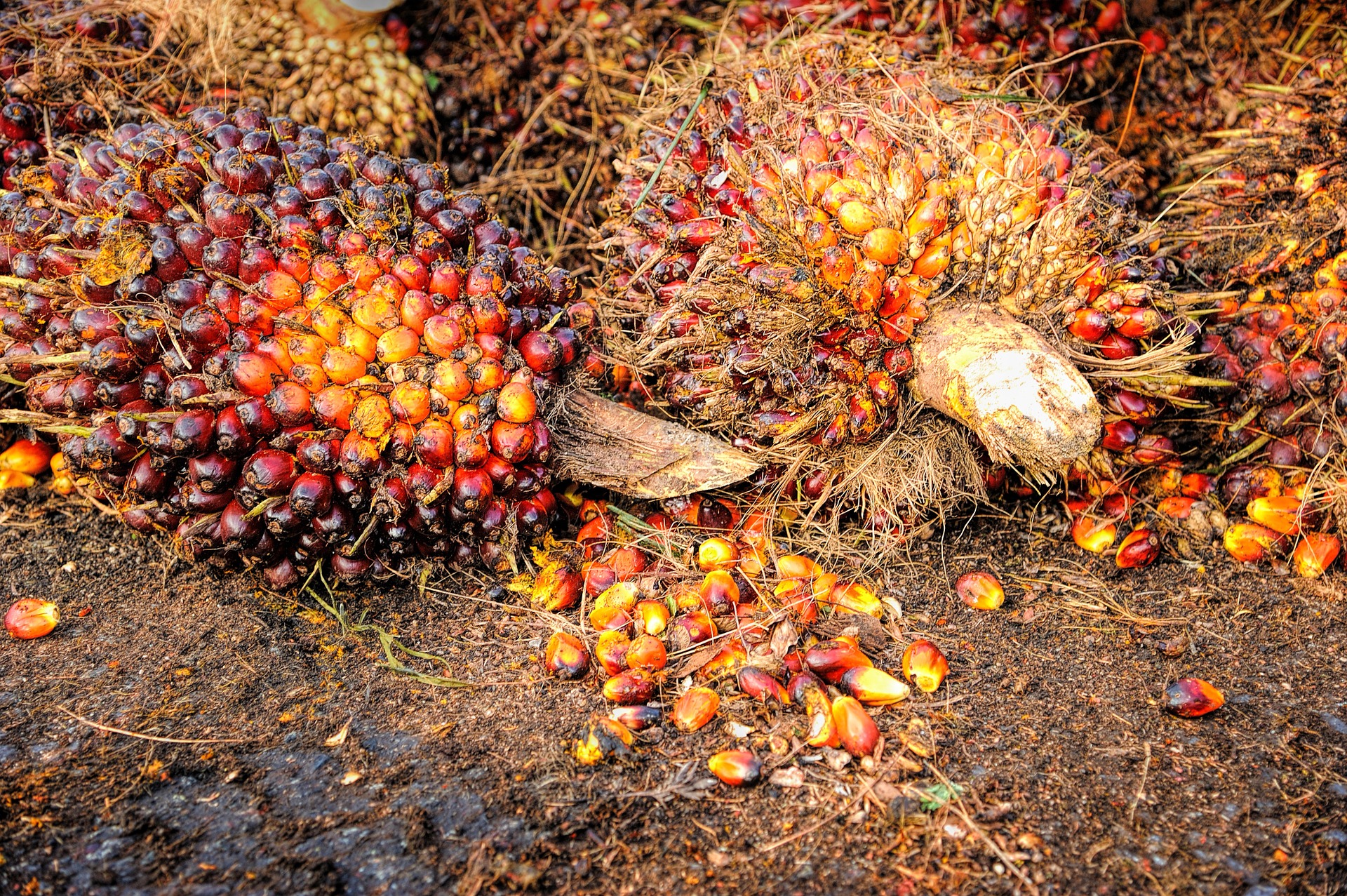Palm oil processing business in Nigeria is a highly profitable business that you need to give serious attention. The palm oil fruit is indigenous to Nigeria. Our soil naturally grows them and they are found in the south east and south west of the country. Everyday, thousands of tonnes of palm oil is processed for consumption and use. Still yet, barely enough is available locally. We have to import from Asian countries and other foreigners that do not grow half as much as we do.
There is no debate about it, we are in need of more processing plants in the country both large scale and medium scale. Large scale palm oil processing plants are scarce if there are any available in the country. The medium scale plants do just fine and can process within 3-50 tonnes daily depending on size and sophistication of machinery. Here we will be talking about setting up the medium scale plants, what it takes and how.
SEE ALSO: How To Start High Yield Palm Oil Plantation In Nigeria
The Steps Involved in Processing Palm Oil
There are five major steps when processing the palm fruit bunch to its final product – the palm oil. These steps are listed below accordingly:
- Weighing and Offloading from trucks: The act of weighing is very crucial to the operation for easy calculation of the amount you are producing and calculation of the cost from sellers. Offloading from trucks has to be done carefully because it may affect the overall quality of the product. If it is handled carelessly the acid content may rise and offset the taste and increase the processing hurdles as the acid content has to be reduced to a certain minimum.
- Threshing: This is the process where the fruit are cut off to separate them from their bunch. They are subjected to high temperature boiling in water to loosen the fruits in a process known as sterilization by pressurized cooking.
- Pressing/Extracting the Palm Oil: This is the peak of the processes involved in the processing of the palm oil, where the oil is being extracted from the fruit bunch.
- Filtering of the palm oil: The oil at this stage will contain unwanted remains of the fruit shells and water and some other dirt. So it is purified at this stage.
- Storage of the palm oil: After the whole work is done, they are stored in gallons or barrels, to be transported later to the market or for buying customers to come and pick up, as palm oil is often sold on-demand.
SEE ALSO: Palm Kernel Oil Extraction Production Process In Nigeria
Find Suitable Space and Location
First, you will need a decent amount of open space for the plant. Then the next consideration is the distance the plant is from the nearest farm that can supply you with the palm fruits known as Fresh Fruit Bunches (FFB). The location should be able to accommodate a parking space for trucks for offloading the palm fruits.
Also, some of the processing might be done manually by hands, make sure there is enough room for many workers to roam about.
Water Supply
You will need a constant water supply for the boiling/steaming of the palm fruit during processing. It has to be clean because hygiene is of utmost importance in palm oil processing. There is a high possibility of being located in a remote area where there is neither electricity nor treated water supply. So you might have to pay the water board to fix a pipe from the nearest town to your processing plant. Or a preferable alternative is to dig a borehole on site. That will save you a lot of money from paying water bills and it is always available whenever you need it.
The Equipment You Need
A mill is setup for the processing of palm oil. The mill does most everything in the palm oil processing operation such as the boiling, threshing, fermentation, fruit clarification etc. Depending on how much of the processing plant you wish to mechanize, the machines you need may vary. If for example the threshing is left to manual laborers, you wouldn’t need a thresher. But of course there would be a wide gap when it comes to efficiency between the workers and the machine. Machines will perform faster and reduce waste significantly.
The most common machines found in a palm oil processing mill are the thresher, boiler, presser, and the clarifier. Each mill has a capacity rating, that is an amount of palm oil it can process daily. Small ones usually produce about 1 tonne every 24 hours and medium to large ones produce over 10-100 tonnes daily.
SEE ALSO: How To Start High Yield Palm Oil Plantation In Nigeria
The suppliers of the machinery provide tech support, they should be able to provide you with any information you need regarding the setting up of the mill and its maintenance.
List of Required Items
This business is capital intensive, it needs preparation both monetarily and logistically. We will be adopting a medium scale model as it is the popular and practical model in West Africa (particularly Nigeria) and is big enough to accommodate even for exporting. So the items that will be listed will reflect the medium scale business model.
| Item | Description | Price |
| 10 Ton Capacity Mill | Production capacity = 10 tonnes, including boiler, thresher and all the other necessary machines. | 3,800,000 |
| Diesel Generator | 16KVA power generator. | 1,406,500 |
| Borehole | For water supply. The full installation with electric pump connected to tanks for storage. | 300,000 |
| Plot of Land | 1,000,000 | |
| Total = | 6,506,500 |
Hire Trained Staff
The workers that will be operating the mill should be experienced in the job or at least they should have training on how to operate the specific set of machines available in your processing plant. But some workers don’t require an extensive training, those responsible for offloading the fruit bunches and other manual labours.
You may also need among the staff professional engineers, chemical engineer for testing and evaluating of the oil product and mechanical engineer for the mill maintenance. Another option is to hire them temporarily whenever they are needed.
Expected Profit Margin
A tonne of palm oil is sold for somewhere around $550 which is about 173,000 in Naira, and only 25% percent of the oil is extracted from a fruit bunch making if a good machine is used, so you need about 40 tonnes of fresh fruit bunches for 10 tonnes of palm oil which is the average capacity of the medium scale mill we mentioned above. Now if you account for weekends like a Sunday when there isn’t work and days it takes to process each batch of bunch, mostly 3-4 days because fermentation alone takes 2-3 days, you will be left with about 12 days of pure palm oil output, which gives you 120 tonnes per month.
The machine itself works at 90-95% efficiency according to the manufacturers leaving you with 100 tonnes of oil per month. We said earlier 1 ton is sold for N173,000 so we will be having N17,300,000 for 100 tonnes. Now close to 40% of the expenditures is the cost of the palm fruit, which stands at about 6.9 million Naira, the rest of the expenditures are transportation, staff payment, diesel fuel and maintenance costs, they roughly add up to 3.5 million Naira, so you have;
17,300,000 – 6,900,00 = 10,400,000
Then 10,400,000 – 3,500,000 = N6,900,000, approximately 7 million Naira, this is your expected profit when embarking on this business.
Summary
Capital to start business: 6.5 million Naira.
Business type: Capital intensive.
Potential customers: Sold on-demand.
Suitable location: Near palm oil plantation.






Please where can I get the machines needed for the processing here in Nigeria
I think a quick search about ‘palm oil processing machines’ will reveal companies that supply the machines
Since the formation of the corporation 45 years ago, we have gained valuable experience in our field; today, we are a Specialist in designing & manufacturing of Oil Mill Machinery, Oil Extraction Machinery and Equipments, Oil expellers, Oil Presses, Pellet Making Machines, Elevators, Copra Cutter, Soybean Oil Mill Machinery, Edible Oil Mill, Palm Oil Mill, Olive Oil Mill, Groundnut Oil Mill, Bio Diesel Plants, Edible Oil and Oil Extraction Plant & Machinery.
How can I contacts to the dealers of the machines, I need them to start my own firm.